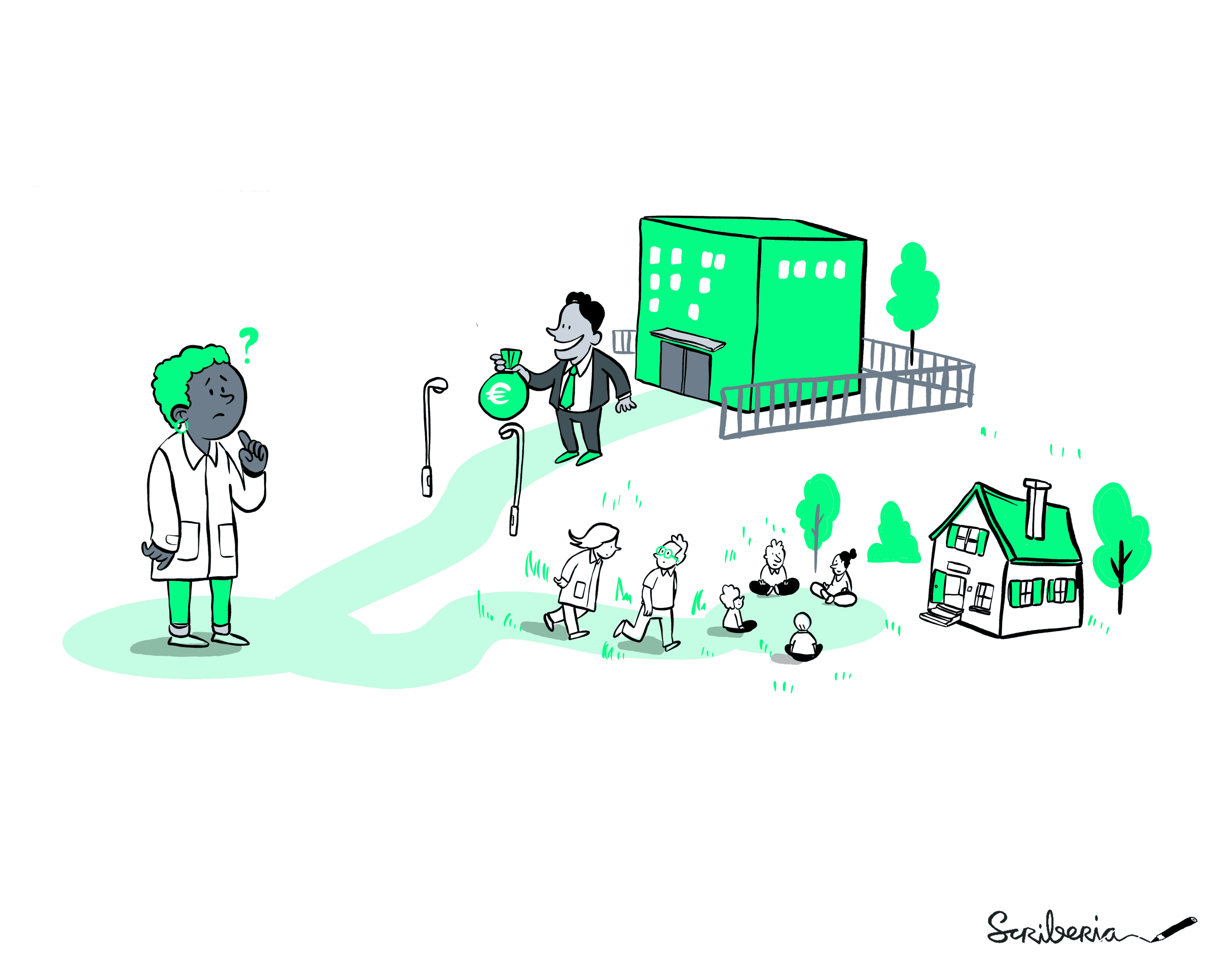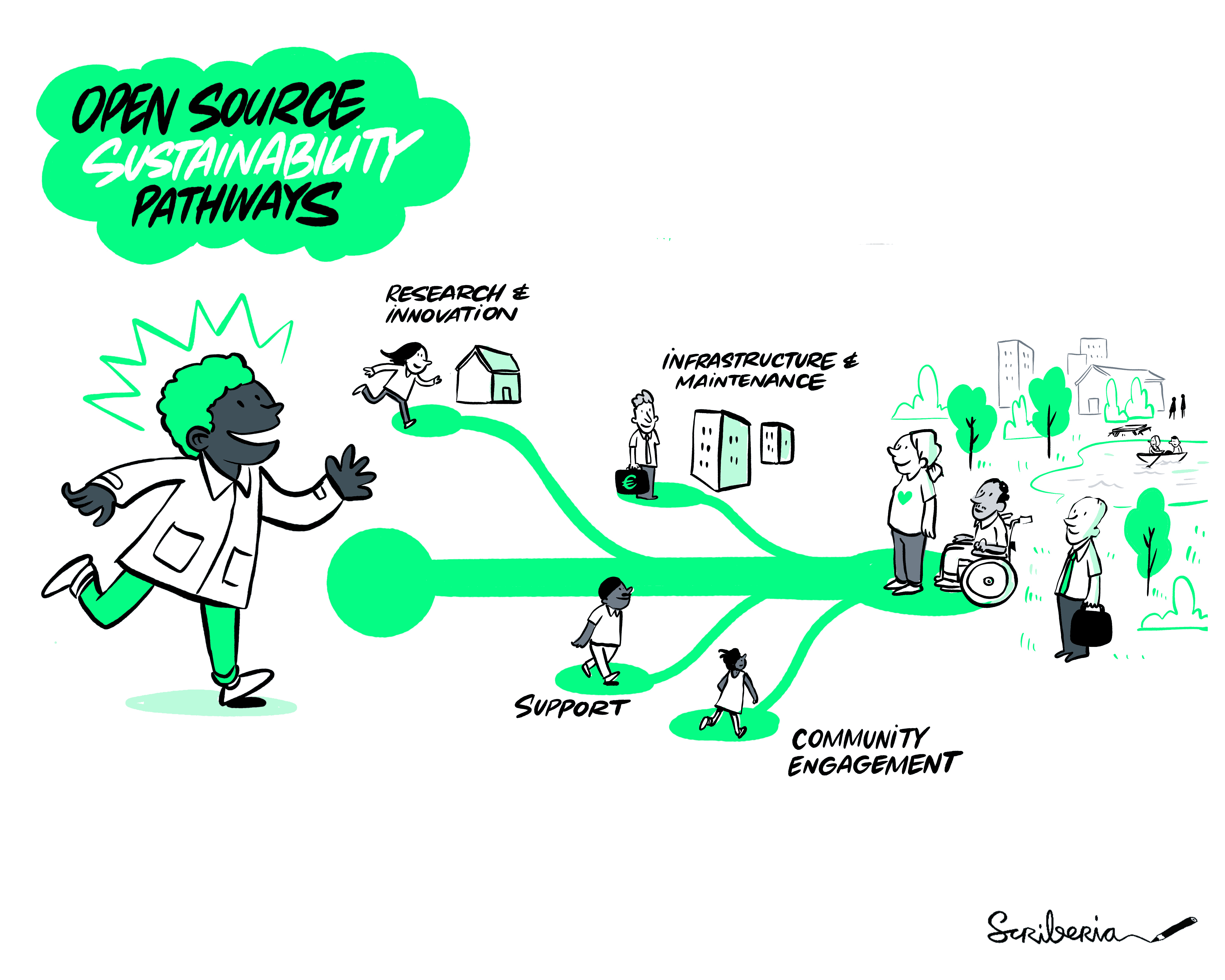Early-stage projects often reach a point when funding has run out for a project that they have spent months or years developing, and they can face a daunting array of obstacles on the road to turning an academic or volunteer-led project into a robust, sustainable enterprise that will outlive its original funding source. In this chapter we will outline the factors that should be considered when you want to turn a project into Open Source Software (OSS) with a self-sustaining organisation, and we will explore how different projects have achieved sustainability through a variety of organisational structures.
The big misconception about Open Source¶

Figure 1:This image was created by Scriberia for The Turing Way community and is used under a CC-BY 4.0 licence for reuse. Zenodo. DOI 10.5281/zenodo.3332807
One of the most common beliefs about Open Source is that it simply means “free” and therefore an open source project can never generate revenue or profit. The definition used by The Turing Way states that OSS should:
Be publicly available: It is difficult to use and benefit from knowledge hidden behind barriers such as passwords and paywalls.
Defining project sustainability¶
Narrowly-defined, a sustainable project must have funding to continue operations, which alone represents a daunting challenge to someone who wants to take their idea beyond an academic or personal project so that it can thrive on its own. More broadly-defined, sustainable open source projects encompass the values of reproducibility, transparency, accessibility, and reusability while maintaining an engaged community of contributors - and this is feasible through both monetised and non-monetised routes. While OSS must be freely available, including in the monetary sense, this does not necessarily mean that a project that is run openly and sustainably cannot be monetised.
For instance, many of the world’s largest companies build, use and maintain open source software because open development has been shown to produce innovative, stable, and secure software tools that are in high demand around the world.
It can seem like there is a binary choice between commercialisation (for example, a startup or spinout company) and remaining completely open source (for example, setting up a volunteer-based community governance model. However, these two paths should not be considered mutually exclusive, and an open-source, community-governed project can work in tandem with a business based on that same project. There are several pathways to generating revenue from an open source project, whether for profit or to sustain a not-for-profit enterprise. In this chapter we’ll present some of key considerations when looking to make a project sustainable, and how these differ depending on the organisational structure you want to pursue.

Figure 2:This image was created by Scriberia for The Turing Way community and is used under a CC-BY 4.0 licence for reuse. Zenodo. DOI 10.5281/zenodo.3332807
First steps towards OSS sustainability¶
When considering whether a research output can develop into a self-sustaining project outside of academia, we urge you to reflect on the following four areas:
- Research & Innovation: Is the project contributing to wider societal progress and continuing to improve?
- Community Engagement: Does the project have an active contributor base to carry the project forward?
- Infrastructure & Maintenance: Will the project be able to sustain itself and adapt to technological changes?
- Support: Can the project respond to the needs of its user communities?
It’s ok if you don’t have an answer to all of these questions!
These questions will help you identify your project’s strengths and areas where you need help, and you can refer to this list of spinout resources for more information. You can also refer to the chapter on Ethical Considerations for Open Source Governance Models in the Guide for Ethical Research for an ethical lens on governance frameworks for Open Source communities.